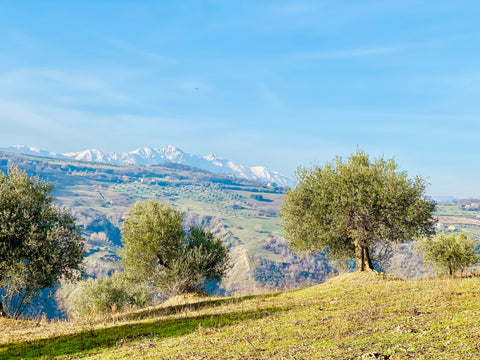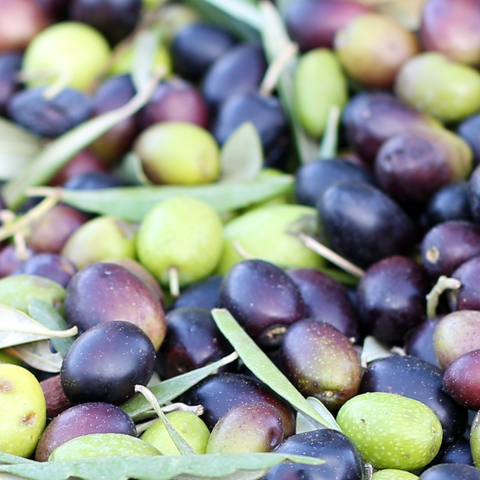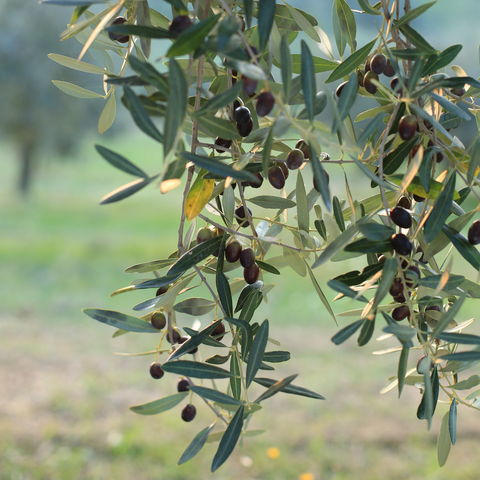What Does Virgin Olive Oil Mean? (Extra-Virgin Olive Oils)
What does virgin olive oil mean? Do you also wonder why people would opt for this kind of oil, even if it’s pricier, instead of buying other less expensive products?
Here’s why!
Virgin olive oil is an unrefined oil, which means no heat or chemicals are used in extracting oil from the olive fruit. It maintains the taste and purity of the olive.
However, you can rarely find virgin oil in grocery stores. Most often than not, you can only choose from light olive, regular, and extra-virgin olive oils.
Extra Virgin Olive Oils
So, what does virgin olive oil mean? When we say extra-virgin olive oil, it is the highest quality of olive oil that one can buy.
For it to be labelled as "extra-virgin" means that it has met the specific oil standards.

The intricate process in making this type of olive oil can retain the authentic taste of olive. Please read here How to make olive garlic oil.
Aside from that, this also contains a relatively lower level of oleic acid than any other varieties of olive oil. Its oleic acid content does exceed 1%.
This type of olive oil is considered unrefined because no chemicals are used to treat it.
Moreover, it is not also altered by temperature. And since it is crude oil, it contains a higher level of vitamins and minerals extracted from olives.
Even though you can cook using extra virgin olive oil, unfortunately, it has a lower relatively lower smoking point than many other oils out there. It means that it will burn at a lower temperature.
With that being said, it is best to save this high-quality stuff for cold dishes, dressing dips, and dipping bread.
For your baking and cooking, you can get those less expensive ones.
What Makes Extra-Virgin Olive Oil Different?
Are you wondering how does it differ from other olive oils? Well, aside from low oleic acid level, the absence of sensory flaws also set it apart from them.
Typically, its colour is golden-green, and it has a distinctive flavour with a light peppery finish. Please Read Here How To Make Flavoured Olive Oil
Now distinguishing the virgin olive oil from extra-virgin olive oil – although they are made under the same process – the latter's production is more rigid.

Apart from that, extra-virgin olive oil has a bit lower oleic acid level.
When it comes to their taste, virgin olive oil's flavour is a bit intense than extra-virgin olive oil. It is based on the International Olive Council standards.
When is the best time to purchase extra-virgin olive oil?
The premium quality extra virgin oil can provide the best flavour and optimum health benefits when it is fresh. Learn More here How much fresh pasta per person
You should purchase one within twelve to eighteen months of its harvest date.
Also, remember to use it up within six months after it has been opened. More importantly, you have to store it in a cool dark place.
How can you tell if the olive oil is virgin?
What you see is not always what you get.
Many olive oils out there claim to be virgin or extra-virgin when they do not meet the quality standards of genuine extra virgin oil.
So to avoid buying those, you apply the following tips:
Checking the label
In determining whether the olive oil on your shelf is virgin, you should check the North American Olive Oil Association or NAOOA label on its bottle.
It is a trade group responsible for testing the olive oils to measure the manufacturers' claims.
In other words, the group tests whether the olive oils fit in the labels. It is to make sure that the products are not mislabeled or adulterated.
They base it on the standards being set by the International Olive Council (OIC), which is the worldwide body that establishes quality standards for the olive oil industry.
Test it on your own
However, culinary experts and chefs claim that the best thing to do is test it independently.
You can pour a small portion of the olive oil into any white dish, then evaluate its consistency.

Make sure that they are smooth, even if they are way thicker than vegetable or corn oil. And, of course, it should smell like olives.
As the oil touches your palette, it should have a smooth finish on the tongue. Then as it hits your throat, it should produce a minimal burning sensation.
That is because fresh oils have a particular type of antioxidant called polyphenols.
Can different types of olive oils be used as substitutes for each other?
The quick answer would be yes. If the recipe includes olive oil, you can either use the regular olive oil or the extra-virgin ones.
It is entirely up to your personal preference as a consumer. You can use both of them for cooking and baking.
Just keep in mind that they have varying smoke points.
But if you ask me, of course, I'd like to stick with virgin olive oil due to its rich flavour. It is especially true to uncooked dishes or for dips and dressing purposes.
You might want to for look for a shop that sells quality extra-virgin olive oil, I suggest you visit Torre & Olives.
I hope this helps!
It’s A Wrap!
What does virgin olive oil mean? The different varieties of olive oil are characterized by the process used in extracting the oil, the additives used, and the level of oleic acid.
Across different varieties, virgin and extra virgin olive oil can provide the greatest health benefits.
It does not contain chemicals; instead, preserving the natural flavour and the vitamin and mineral content of olives.
For that reason, most people (especially the health-conscious ones) prefer virgin and extra virgin olive oil over other varieties of olive oils.
But remember that you should only take even the best quality oils in moderation. Yes, olive may belong to the healthiest oils there is, but it is still fat.
